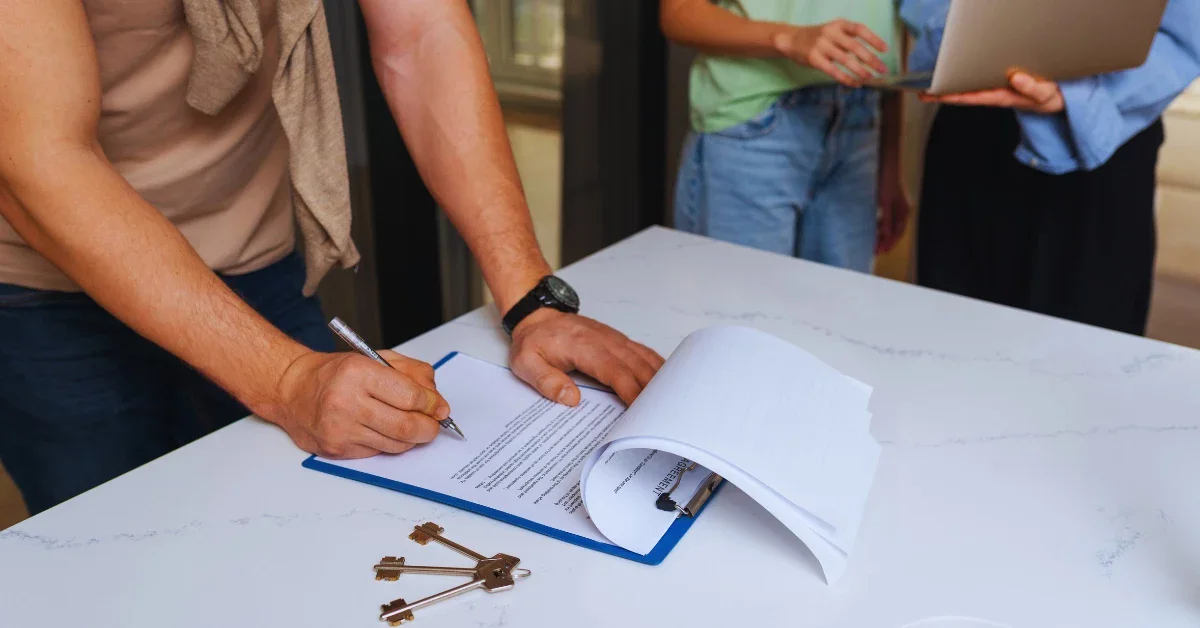How Often Can a Landlord Inspect a Property in North Carolina?
In north carolina, a landlord can inspect a rental property once every two weeks as long as they provide reasonable notice to the tenant. However, inspections for repairs or emergencies can be done without notice.
Understanding these rules can help protect your rights as a tenant while also maintaining a positive landlord-tenant relationship.

Defining Property Inspection: Key Concepts And Vocabulary

Definition Of Property Inspection
A property inspection is the process of examining a rental property to ensure it is in good condition and that the tenant is following the rules and regulations of the lease agreement.
Inspections are typically done by landlords or their representatives and include examining the interior and exterior of the property.
Why Property Inspection Is Significant
Regular property inspections are essential for landlords to maintain the condition and value of their investment properties.
There are various reasons why property inspections are significant, including:
- Identifying and addressing any safety hazards to ensure tenants are living in a safe environment.
- Identifying maintenance needs and making repairs to prevent larger, costlier issues down the road.
- Verifying that tenants are following the lease agreement and that the property is being well taken care of.
- Assessing the overall condition of the property and making necessary upgrades or improvements to maintain its value.
Types Of Property Inspections
There are different types of property inspections that landlords may conduct. Some of the most common ones include:
Move-in inspections
These are conducted when a new tenant moves into the property to document its condition before the tenant moves in.
Routine inspections
This type of inspection is performed periodically throughout the lease term to identify any issues or repairs that need to be addressed.
Move-out inspections
Conducted when the tenant moves out of the property, this inspection will determine whether or not the tenant will receive their security deposit back.
Emergency inspections
These are conducted in response to specific situations such as a natural disaster or an emergency maintenance issue.
North Carolina’s Laws And Regulations On Landlord Inspections
If you’re a landlord or a tenant in north carolina, the north carolina residential rental agreement act lays down the legal groundwork for your rental agreement.
The agreement contains provisions that govern the rights and responsibilities of both landlords and tenants.
Understanding these provisions is vital for a clear understanding of how landlord inspections must take place. Here are some essential aspects to be aware of:
- The landlord has a right to enter the property for very specific reasons, as outlined in the rental agreement, or after issuing a written notice to the tenant.
- A tenant has a right to “quiet enjoyment” of the property, which means the right to private and peaceful use of the premises.
Key Provisions For Landlord And Tenant In Property Inspection
A landlord has the contentious task of inspecting their property for maintenance, repair, and safety reasons.

But tenants also have rights regarding property inspections, and these are as follows:
- A landlord cannot enter the property without giving due notice. The tenant must be notified of the landlord’s entry into the property for inspection, except under specific circumstances such as emergencies.
- The tenant should have sufficient time to prepare for a property inspection. The tenant can request the landlord to reschedule the inspection if the notice is not adequate.
- The inspection must be reasonable. The landlord cannot abuse their right to inspect a property, and the tenant should not perceive the visits as harassment.
- The tenant and landlord should conduct the property inspection together. The landlord should invite the tenant to the property inspection, and be clear about the purpose of the inspection. A landlord should also keep records of inspection reports, including the date, time, and purpose of the inspection.
How Often Can A Landlord Inspect A Property In North Carolina And Legal Timelines
Although the lease agreement generally specifies how often a landlord can inspect a property, the north carolina rental laws dictate that a landlord must have a “reasonable” reason for inspection.
The reason includes checking for safety and repairs.
According to section 42-42(a) of the north carolina general statutes, if the rental agreement does not specify the key provisions, the landlord can inspect the property at a reasonable time and with reasonable notice.
It is the landlord’s responsibility to clarify the frequency of inspections. Generally, a reasonable number of inspections per year is two.
Preparing For Landlord Inspections In North Carolina
As a tenant, you are likely well aware that your landlord has the right to inspect the property you are renting.
Since the frequency of inspections can vary, it’s best to be prepared at all times.
Here are some tips to help you prepare your property for a landlord inspection:
- Clean your property thoroughly: A clean property can speak volumes about how well you are taking care of it. Ensure all rooms are clutter-free and that every surface is clean.
- Replace any light bulbs that may be out: You don’t want a simple detail such as burned-out bulbs to give off the wrong impression.
- Check all smoke alarms: Ensure all smoke alarms are in working order and replace batteries if necessary.
- Tidy up the exterior: Your landlord may also inspect the exterior of the property, so ensure any outdoor areas are free of clutter or debris.
- Ensure keys and locks work properly: Make sure all keys and locks work smoothly. If they don’t, alert your landlord.
Potential Violations And How To Correct Them
Your landlord’s inspection will be primarily based on their property management requirements.
During your landlord’s inspection, they’ll be looking for evidence of any possible violations of your rental agreement. If the inspection reveals any, don’t panic.
Here are some common violations and hacks to correct them:
- Frayed or dangling electrical cords: Replace or repair them.
- Clutter: Discard any unwanted items and tidy things up.
- Pet odour: Wash your pet bedding and blankets regularly and use an odour-neutralising spray.
- Dirty bathroom: Clean tiles, tub, basin, and any other dirty bathroom surfaces thoroughly.
- Damaged or stained walls or carpets: Repair the damage or seek the help of a professional cleaner.
Negotiating With Your Landlord To Find A Balanced Inspection Schedule
You can negotiate with your landlord to find a balanced inspection schedule. Here’s how:
- Review your lease: Be aware of how frequently your landlord can inspect your property before your contract expires.
- Request a mutually convenient inspection schedule: Communicate with your landlord to schedule inspections that work for both of you.
- Discuss any concerns: If you’re not comfortable with the frequency of inspections or want to request any changes, discuss these with your landlord.
FAQs
How Often Can A Landlord Inspect A Rental Property In North Carolina?
Landlords are allowed to conduct a property inspection once every three months with proper notice.
Can Landlords Enter Without Notice In North Carolina?
No, landlords in north carolina must provide reasonable notice to enter a rental property.
What Is Considered Reasonable Notice For A Landlord To Inspect A Rental Property?
Reasonable notice for a landlord to inspect a rental property in north carolina is usually 24 hours or more.
Can A Tenant Refuse A Landlord Entry In North Carolina?
Tenants in north carolina have the right to refuse entry to a rental property if the landlord fails to provide reasonable notice.
Conclusion
Understanding your rights is key when navigating North Carolina’s rental scene.
Remember, landlords can only inspect your property twice a year without a specific reason.
Always maintain open communication with them to avoid unnecessary disruptions and keep your living space private and comfortable.
Reference
https://files.nc.gov/ncdhhs/documents/files/hcbs/landlord_tenant_brochure.pdf